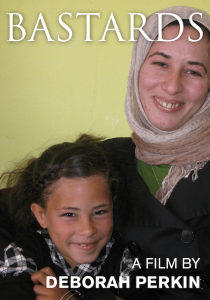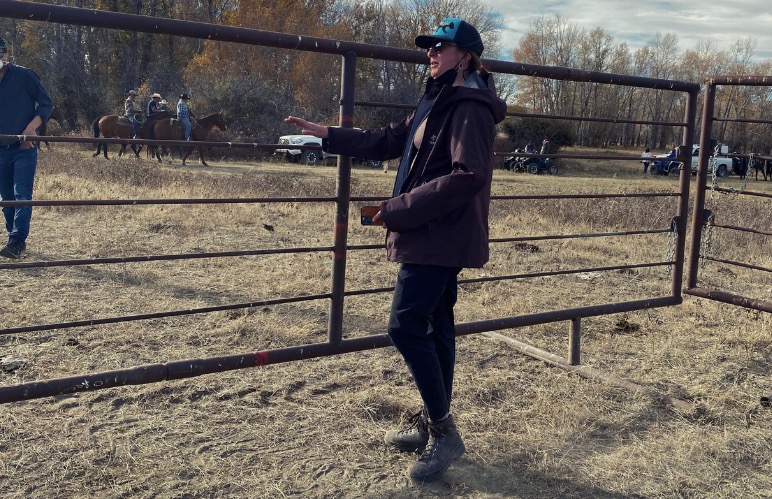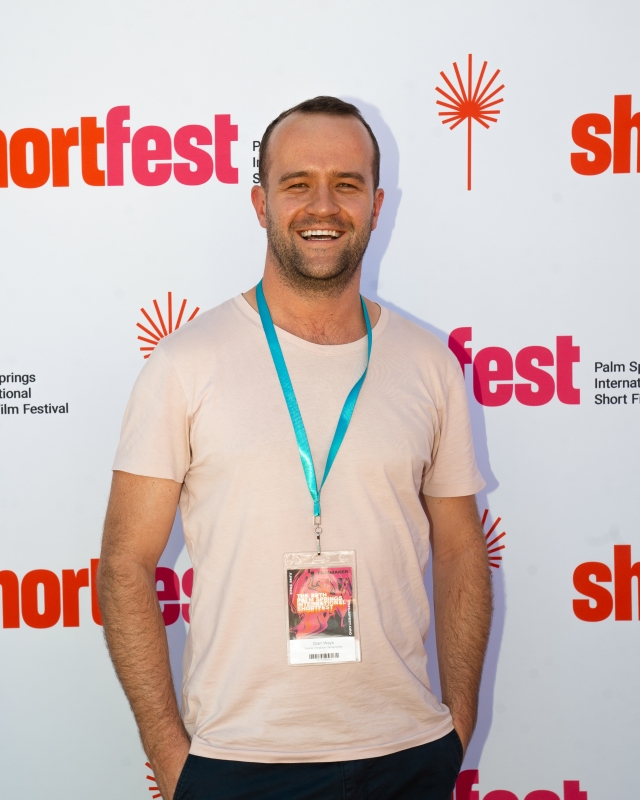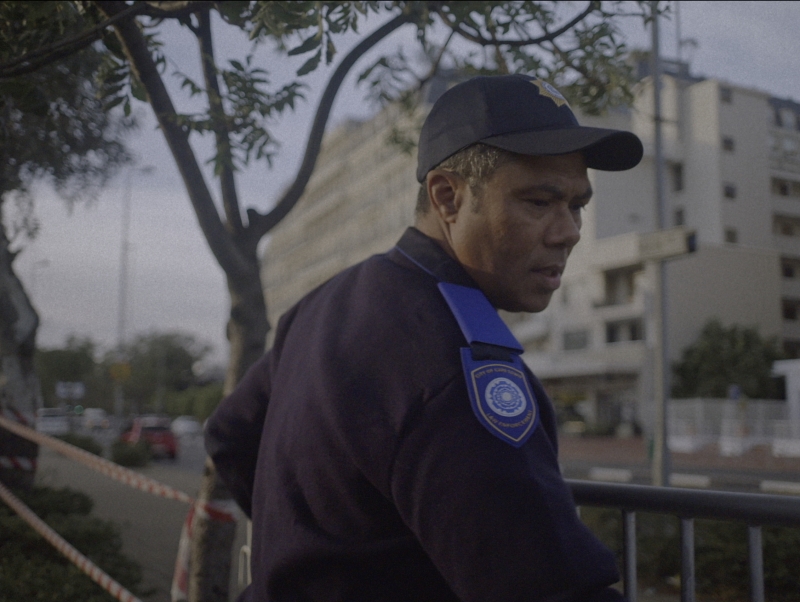|
|
||
|
Pro Tools
FILMFESTIVALS | 24/7 world wide coverageWelcome ! Enjoy the best of both worlds: Film & Festival News, exploring the best of the film festivals community. Launched in 1995, relentlessly connecting films to festivals, documenting and promoting festivals worldwide. Working on an upgrade soon. For collaboration, editorial contributions, or publicity, please send us an email here. User login |
BASTARDS (2014). Interview with Deborah Perkin.
BASTARDS (2014) at 16th Thessaloniki Documentary Film Festival. 'Bastards' by British director Deborah Perkin focuses on the troubled fate of illegitimate children in Morocco. The film opens with the official English definition of the word 'Bastard': “1) a person born of parents not married to each other and 2) an unpleasant or despicable person”. Just after we are reminded of what the word truly means, multiple images of innocent children grace the screen. Adorable, loveable, unlucky, these children (aka 'bastards') are the offspring of illegitimate marriages in Morocco. In Morocco, like in all Muslim countries, sex outside of wedlock is still illegal. While Morocco is recognized as the Arab world's most liberal Muslim country, women who bear children outside of marriage are social outcasts and their babies, most times abandoned by their father, are considered a fatherless illegitimate. 'Bastards' is told from the POV of Rabha who has a daughter from her unrecognized marriage (because she was forced into marriage underage at 14 years-old) as she fights against the archaic Moroccan legal system in order for her daughter to receive immunizations and to become a 'legitimate' child in society.
I interviewed Deborah in Thessaloniki, Greece during the 16th annual Thessaloniki Film Festival. Here is what she had to say: ME: When did you decide to make a film about the situation of illegitimate children in Morocco? DEBORAH: It was four years ago, after a vacation touring around the Imperial Cities and noticing how many women were working and clearly taking part in public life. To a Western eye, women are not at the forefront of Moroccan society, with the cafes full of men and so on, but to my eye, having worked in Egypt, Jordan and Turkey, it was extraordinary to see so many women out and about. I could see that something special was going on in Morocco, so I came home and researched what it was. It turned out that Morocco had reformed its Family Law code to give women and men more equality within marriage and in care of children. I checked with leading international experts on Islamic law, and discovered that Morocco leads the world in terms of women's rights. That was a story that I had never heard before, so I wanted to share it. I decided to focus on illegitimate children, the most innocent and vulnerable group of people in a a Muslim society, where sex outside marriage is illegal. ME: How did you find your characters? Was it hard to get your cast to decide to be filmed? DEBORAH: I found a charity called the Women's Solidarity Association*, and after a lot of discussion, they decided to trust me and open their case files. It wasn't hard at all to persuade women to be filmed. I was amazed! Nine out of ten were desperate to tell me their stories. I started filming with around ten single mothers before I found my main character Rabha El Haimer. Not only was she articulate and passionate, but her case was just coming to court, and she was happy to let me follow her. * The charity is run by an inspirational woman called Aicha Chenna - she set up her charity in the face of death threats 30 years ago, but now she's honoured by the Moroccan king and in 2013 was given the French government's highest honour, the Legion d'Honneur. ME: The title is very well chosen. You are focusing on these innocent children who would be the definition of 'bastard' in the dictionary and yet it is the men who are the 'bastards'. Was the double-entendre intentional? DEBORAH: Yes, absolutely. At the top of the film I run white text on black with the two dictionary definitions, inter-cut with shots of beautiful innocent illegitimate children looking straight into camera. The idea was to challenge the audience - who are the real bastards here? ME: How long did it take you to film this and how many hours of footage did you have by the end? DEBORAH: The main shoot with Rabha took two months, and the overall shooting period was 18 months. I had to keep going because the man Rabha was taking to court appealed against the verdict. I had to see the story through to the end. ME: If Morocco is the most liberal of Muslim countries, how must this situation be in other Muslim countries? DEBORAH: Sex outside marriage, whether that's adultery or between single people, is forbidden in Islam, so it depends on the country as to how severe they wish to be with people who break the law. Stoning to death is still the punishment on the law books in 14 countries. In Saudi Arabia where women are not even allowed to drive, it is hard to imagine what life must be like for a child born out of wedlock. I imagine they are hidden within families, just as they used to be in Britain, where the extra child was brought up by the grandparents, pretending it was their child. I'm no expert. It would be great to hear from people in other countries. I'm thinking seriously about setting up an anonymous page where people can post their thoughts and experiences. ME: Do you think the monarchy in Morocco makes the situation better or worse than other Muslim countries? DEBORAH: I imagine it makes no difference. You could argue that Morocco and Saudi Arabia are the most and the least socially liberal Muslim countries, and they are both led by monarchies. Tunisia does not have a monarchy and used to lead the way for women, and of course Turkey is a secular society, where family law is not based on Islam, thanks to Ataturk, who said women could stop wearing the veil in the 1920s. Now the government is becoming more religious and conservative. None of this happened under a monarchy. ME: What do you think about the rise of poverty happening in the world today, and with that the rise in homelessness? And how, in your mind, does that affect women's rights, and human rights in general? DEBORAH: Massive question! I think history proves that when resources are scarce, men tend to take the best jobs and women fare worse. The argument tends to go that men need better pay in order to support the family. However, there's a huge amount of evidence to show that in order to lift communities out of poverty and ill-health, it's best to train the women. My husband, who is a UK National Health Service doctor, is working on a project to train pregnant women in South Sudan about basic mother and child welfare. It's building on a model which has proven that this is the way to extend women's rights to health and control over their bodies. Much better than training up male health workers, who tend to leave their communities and go for better paid jobs in the cities. It's not rocket science - it's about educating women who then spread the knowledge around their families and friends, and who tend to stay within their communities, not abandon them. ME: While the rest of the Arab world has been experience the Arab Spring, do you think Morocco could head in a similar direction? Or do you think the men are open to change and progress as much as the women? DEBORAH: Morocco had pro-democracy protests in February 2011. I filmed them, wondering if they'd become part of my story somehow, producing more legal reform. My personal view is that there wasn't any appetite for violent revolution, firstly because most people love King Mohammed VI and see him as a force for good, and secondly because there is a justice system open to individuals. It might not be perfect - and Moroccans will tell you all about that - but at least a woman like Rabha in my film has access to the courts. ME: Will you continue to make documentaries? If so, what will you work on next? DEBORAH: Yes, I love making documentaries, especially ones like "Bastards" where I can open people's eyes to a world they hadn't known much about before. I'm looking at several new stories, another one in the Arab world, and one close to my home in Wales. ME: How did it feel to be a guest at the 16th TIFF? How was the reaction to your film? DEBORAH: It was a wonderful place for my world premiere. TIFF is a really vibrant festival with a huge and dedicated audience, as well as a brilliantly well-organized festival team, ushering me to press conferences and interviews and panel discussions. There were two sell-out screenings of "Bastards", and at each one the audience groaned and sighed and laughed in all the right places. I've worked in television all my life, where you don't hear the audience reacting, so this was really special, to be in darkened room with a big screen and 265 people all focused on my film! After the screenings the Q+A sessions were tremendous. The audience, about two thirds Greek, and one third other nationalities, asked thought-provoking and wide-ranging questions. Thank you TIFF! Visit Deborah's website here: http://www.deborahperkin.com/bastards/
Director Deborah Perkin
Interview by Vanessa McMahon 31.03.2014 | Vanessa McMahon's blog Cat. : BASTARDS (2014). Interview with Deborah Perkin. Interviews
|
LinksThe Bulletin Board > The Bulletin Board Blog Following News Interview with EFM (Berlin) Director
Interview with IFTA Chairman (AFM)
Interview with Cannes Marche du Film Director
Filmfestivals.com dailies live coverage from > Live from India
Useful links for the indies: > Big files transfer
+ SUBSCRIBE to the weekly Newsletter Deals+ Special offers and discounts from filmfestivals.com Selected fun offers
> Bonus Casino
User imagesAbout Vanessa McMahonThe EditorUser contributions |



























 McMahon Vanessa
McMahon Vanessa 


